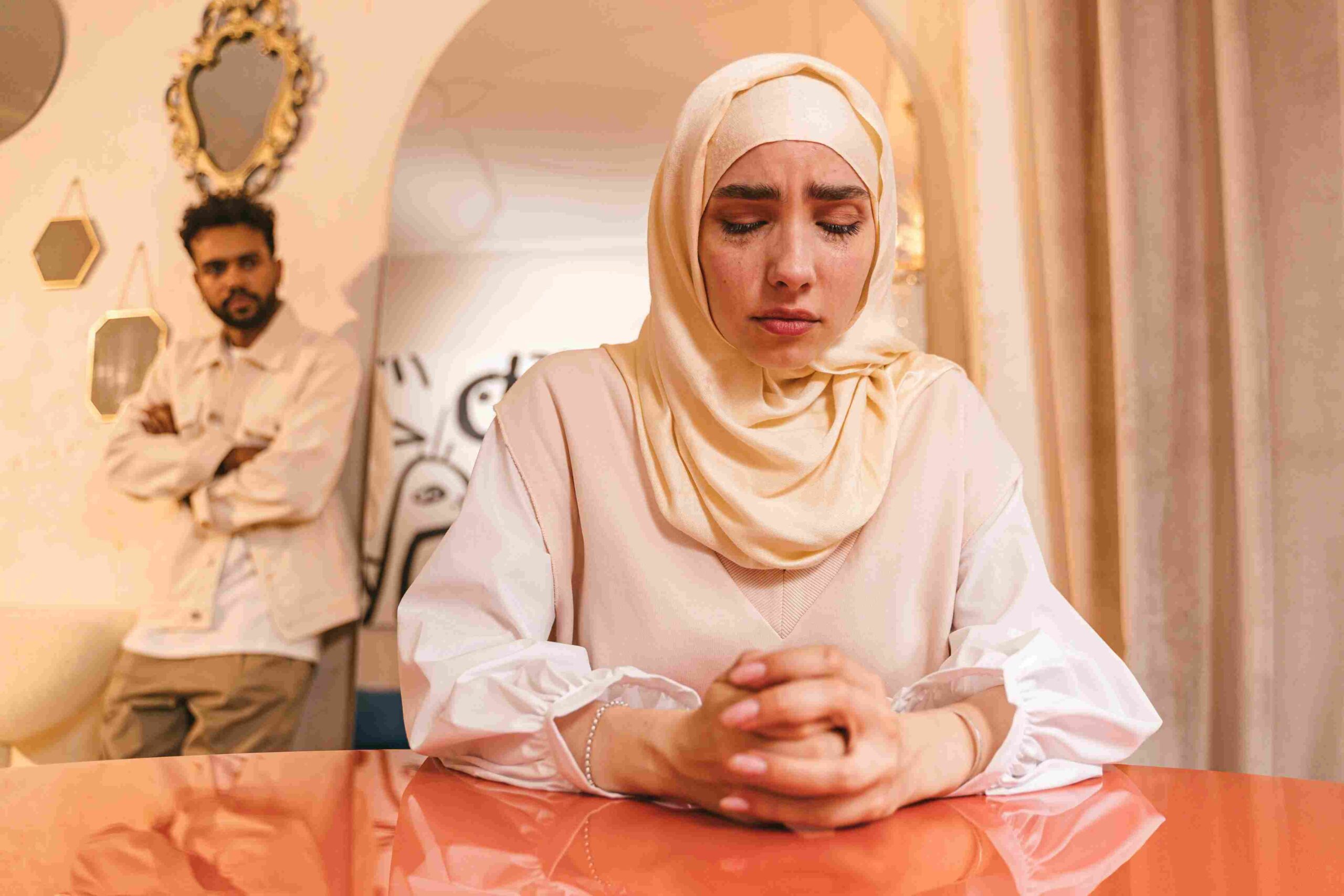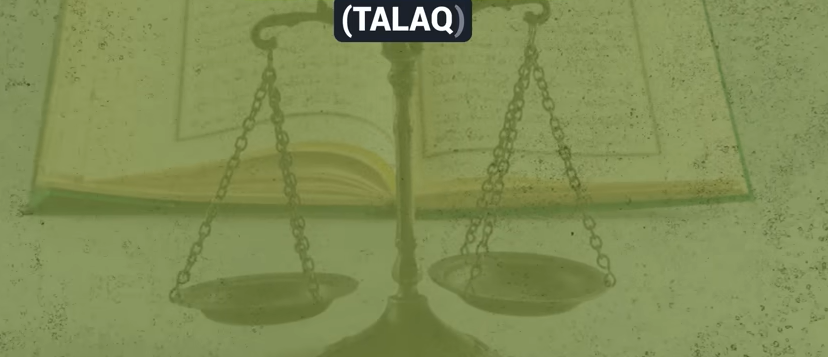
In Islamic traditions, the sanctity of marriage is deeply valued, and divorce is seen as an evil to be avoided. However, when a husband and wife find themselves helpless despite attempts to reconcile, the dissolution of their bond becomes inevitable. In that case, knowledge of the muslim divorce and the Indian Penal Code is important to avoid any further issues.
Before the Muslim Marriage Act 1939, limited grounds were available, leaving wives with no authority to seek separation on their own accord. This Act, however, laid essential reforms, benefiting both men and women equally by ensuring fair legal provisions.
Enforced across India, except for the state of Jammu and Kashmir, the law is seen as a blessing for many people!
Want to Talk to a Divorce Lawyer?
WhatsApp us now at +918447192347!
Understanding Muslim Divorce and the Indian Penal Code
In India, the legal framework for divorce among Muslims is governed by personal laws derived primarily from the Shariat (Islamic Law) and is complemented, in certain circumstances, by provisions under the Indian Penal Code (IPC) and other secular laws.
This duality often creates confusion, especially for those navigating divorce under Muslim personal law while also considering their rights and remedies under the broader Indian legal system.
Muslim Divorce Laws: An Overview
Muslim divorce in India is governed by the Muslim Personal Law (Shariat) Application Act, 1937 and the Dissolution of Muslim Marriages Act, 1939. These laws recognize several methods of divorce for both men and women.
Forms of Divorce for Muslim Men:
-
Talaq – Unilateral divorce pronounced by the husband.
-
Talaq-e-Hasan – Talaq given over a period of time.
-
Talaq-e-Ahsan – Considered the most proper form.
-
Talaq-e-Biddat (Triple Talaq) – Instant divorce (now criminalized).
-
Ila and Zihar – Conditional forms of separation based on oaths or abstinence.
Forms of Divorce for Muslim Women:
-
Khula – Divorce initiated by the wife with husband’s consent.
-
Talaq-e-Tafweez – Delegated divorce.
-
Faskh – Judicial annulment under specific grounds (e.g., cruelty, desertion).
The Role of the Indian Penal Code
While the IPC does not directly govern divorce, it plays a supportive and protective role—especially when one party suffers from cruelty, abandonment, or economic deprivation during or after the marriage. Here are key IPC sections that can become relevant in Muslim divorce cases:
1. Section 498A IPC – Cruelty by Husband or Relatives
If a Muslim woman faces mental or physical cruelty, she can file a complaint under Section 498A. This section applies across all religions and is often invoked alongside family law proceedings.
2. Section 125 CrPC – Maintenance
Although not part of the IPC, this section of the Criminal Procedure Code is crucial. It ensures maintenance for wives, children, and parents. Muslim women are entitled to maintenance under this section even after divorce, as confirmed in Shah Bano’s case (1985), though this led to the Muslim Women (Protection of Rights on Divorce) Act, 1986, which aimed to address post-divorce maintenance under Muslim law.
3. Triple Talaq and Criminalization (2019)
With the enactment of the Muslim Women (Protection of Rights on Marriage) Act, 2019, Talaq-e-Biddat (instant triple talaq) was declared void and illegal, and a criminal offence punishable with up to three years of imprisonment under the IPC. This was a significant reform aligning personal law practices with constitutional rights.
Challenges and Legal Confusion
Despite the legal provisions, many Muslim women still face hurdles in seeking fair divorce settlements or maintenance. Conflicting interpretations of Shariat, lack of legal awareness, and fear of social stigma often discourage women from pursuing their rights through the courts.
Moreover, the intersection of personal laws with criminal provisions creates legal ambiguities. For instance, while a woman may be granted khula under personal law, she might still need to pursue maintenance under Section 125 CrPC or take action under IPC provisions if her rights are violated.
Board to Divorce “Triple Talaaq”
In a significant relief to Muslim women, their husbands will no longer be able to simply get rid of their wives by reciting talaaq three times. The All India Muslim Personal Law Board has decided to ban this practice and ratify a new model of talaaqnama, replacing the age-old three-talaaq system with a Shariat approved phased talaaq.
This decision will be formally adopted through a resolution at its annual meeting on July 4 at Nadwa College, where its 41-member working committee will finalize the draft after years of deliberations. Though the Patna session in October 2003 had already given its nod, the highest-decision making body is set to give its final approval.
Under this reform, separating couples will be given a minimum of three months to reconcile, instead of a shauhar hastily firing talaaqs to separte without offering a chance to his begum.
Why Legal Support Matters
Navigating Muslim divorce law requires a nuanced understanding of both personal law and the Indian legal system. Engaging an experienced matrimonial lawyer can help individuals understand their rights, prepare the appropriate documentation, and represent their interests in court—especially when criminal or civil protections under IPC or CrPC become necessary.
Opulence Legal is a trusted name in family and matrimonial law around the Delhi - NCR area, offering expert legal solutions with discretion and care. With a focus on clarity, compassion, and results, we guide clients through life’s toughest legal challenges.
Contact us today for all your matrimonial issues!


Comments 66
Very good https://lc.cx/xjXBQT
Awesome https://lc.cx/xjXBQT
Very good https://is.gd/N1ikS2
Good https://shorturl.fm/j3kEj
https://shorturl.fm/N6nl1
https://shorturl.fm/m8ueY
https://shorturl.fm/6539m
https://shorturl.fm/6539m
https://shorturl.fm/N6nl1
https://shorturl.fm/a0B2m
https://shorturl.fm/A5ni8
https://shorturl.fm/j3kEj
https://shorturl.fm/5JO3e
https://shorturl.fm/68Y8V
https://shorturl.fm/XIZGD
https://shorturl.fm/xlGWd
Join our affiliate community and earn more—register now! https://shorturl.fm/zx8Fm
Start earning every time someone clicks—join now! https://shorturl.fm/F4gGP
Share our link, earn real money—signup for our affiliate program! https://shorturl.fm/Tz5Cj
Get paid for every referral—enroll in our affiliate program! https://shorturl.fm/9tYXU
Earn up to 40% commission per sale—join our affiliate program now! https://shorturl.fm/wA7ah
Share our link, earn real money—signup for our affiliate program! https://shorturl.fm/ejzyS
Start earning every time someone clicks—join now! https://shorturl.fm/D7M1M
Sign up and turn your connections into cash—join our affiliate program! https://shorturl.fm/OpleI
Monetize your audience with our high-converting offers—apply today! https://shorturl.fm/hKLmk
Drive sales, collect commissions—join our affiliate team! https://shorturl.fm/jOrt6
Promote our products and earn real money—apply today! https://shorturl.fm/i7e8w
Start earning every time someone clicks—join now! https://shorturl.fm/zwxMy
Share your unique link and cash in—join now! https://shorturl.fm/KHC7L
Partner with us and enjoy recurring commission payouts! https://shorturl.fm/zl2px
Earn passive income this month—become an affiliate partner and get paid! https://shorturl.fm/KJP6T
Start earning on every sale—become our affiliate partner today! https://shorturl.fm/Gv70g
Your influence, your income—join our affiliate network today! https://shorturl.fm/CIU9A
Boost your income—enroll in our affiliate program today! https://shorturl.fm/L2va1
Start sharing, start earning—become our affiliate today! https://shorturl.fm/F5B3H
Share your unique link and earn up to 40% commission! https://shorturl.fm/uujtV
Partner with us and enjoy recurring commission payouts! https://shorturl.fm/hqeSL
Share our offers and watch your wallet grow—become an affiliate! https://shorturl.fm/ZS8Ti
Invite your network, boost your income—sign up for our affiliate program now! https://shorturl.fm/jt3V4
Invite your network, boost your income—sign up for our affiliate program now! https://shorturl.fm/bRXbh
Promote our products—get paid for every sale you generate! https://shorturl.fm/6glKB
Boost your income effortlessly—join our affiliate network now! https://shorturl.fm/4MorG
Turn traffic into cash—apply to our affiliate program today! https://shorturl.fm/7Jy3s
Start earning instantly—become our affiliate and earn on every sale! https://shorturl.fm/Hfswz
Get paid for every referral—enroll in our affiliate program! https://shorturl.fm/9ykVO
Start profiting from your traffic—sign up today! https://shorturl.fm/IzCXg
Start profiting from your traffic—sign up today! https://shorturl.fm/IzCXg
Join our affiliate program and start earning today—sign up now! https://shorturl.fm/j0iPv
Join our affiliate program today and earn generous commissions! https://shorturl.fm/OD4h1
Share your link and rake in rewards—join our affiliate team! https://shorturl.fm/XkHcE
Partner with us for high-paying affiliate deals—join now! https://shorturl.fm/QvflY
Get rewarded for every recommendation—join our affiliate network! https://shorturl.fm/1Stwn
Promote our brand and watch your income grow—join today! https://shorturl.fm/NqrMd
Share our products, reap the rewards—apply to our affiliate program! https://shorturl.fm/JoIoY
Earn big by sharing our offers—become an affiliate today! https://shorturl.fm/bfYX5
Join our affiliate program today and start earning up to 30% commission—sign up now! https://shorturl.fm/hIRlv
Promote our products—get paid for every sale you generate! https://shorturl.fm/AiA52
Join forces with us and profit from every click! https://shorturl.fm/i1ydL
Earn passive income on autopilot—become our affiliate! https://shorturl.fm/K510y
Share our link, earn real money—signup for our affiliate program! https://shorturl.fm/thQT2
Share your link and rake in rewards—join our affiliate team! https://shorturl.fm/hQU6P
https://shorturl.fm/RjsTd
https://shorturl.fm/YDcO7
https://shorturl.fm/ToGJR
https://shorturl.fm/Xxfud
https://shorturl.fm/j4eJn